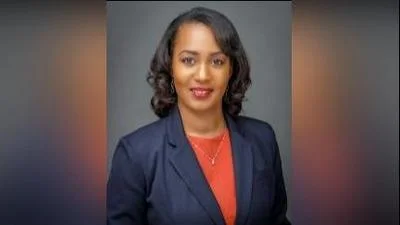Contributed photo
Contributed photo
Illinois ranked among nine states where statehouse reporters participating in a survey where political corruption was perceived to be moderately common.
Illinois did a bit worse when it came to how statehouse reporters perceived corruption, which the survey defined as, essentially, cash for votes or benefits, or "pay-to-play." In that category, corruption in Illinois was perceived as very common, one of 19 states to be so ranked.
The survey measured executive, legislative and judicial corruption. In the aggregated results, Illinois was not even mentioned as the most or least corrupt in the survey's gauges, an indicator of its middling corruption status, as perceived by reporters in the survey.
The results of the survey were published on Illinois State University's website by Oguzhan "Oz" Dincer, an associate professor of economics, and Michael Johnston, a professor emeritus of political science at Colgate University.
"In 2014, we started surveying news reporters covering state politics in addition to the investigative reporters covering issues related to corruption to construct perception-based indices measuring two specific forms of corruption across American states: illegal and legal," the duo said in the survey's background data. "We released the results of the first wave of the Edmond J. Safra Center Corruption in America Survey in late 2014. In the second half of 2015, we conducted the second wave of the survey. We contacted close to 1,000 reporters via email/phone. We received a total of 250 responses."
Even perceived middling corruption is disturbing to many, and Dincer recommended two steps that Illinois should immediately take to fight corruption. “First, government has to be transparent,” Dincer said in an Illinois News Network story. “And secondly, once you have the transparency, people have to watch it.”
Dincer said that will take time.
“You don’t become corrupt overnight,” Dincer told Illinois News Network. “So you can’t solve it with a couple of new rules and regulations.”
Dincer and Johnston's survey comes only a couple of months after one conducted by Crain’s Custom Media released in July found that Chicago-area business leaders strongly believe that so-called "pay-to-play" politics is bad -- but it works. Many of the 428 Chicago-area decision-makers who participated in the Crain's poll said donating to a local politician or hiring a high-powered lobbyist adds to Chicago’s corruption problems, but it does get their own agendas across.
Also in the Crain's poll, 92 percent said big campaign donors have a great deal of or some impact on increasing corruption in Chicago, 91 percent said companies that engage in the political process in the city via paid lobbyists and political contributions gain a business advantage, and 92 percent said a form of crony capitalism is being practiced in Chicago.
Dincer and Johnston's survey also confirmed what industry experts have been reporting for years, that the number of statehouse reporters in the country is on the decline.
"We received a total of 250 responses," the survey said. "Unfortunately, in some states (Delaware, Massachusetts, Missouri, Montana, Nebraska, New Hampshire, South Carolina, South Dakota, Vermont and Wyoming), we have a small number of responses partly due to a small number of reporters covering state politics. Hence, while interpreting the results from these states, we should be cautious. We received no responses from North Dakota."
Dincer and Johnston's survey helps confirm a 2014 report about the size of the press corps in state capitols, published by the Pew Research Center, found the number of those reporters declined 35 percent between 2003 and 2014. Per also found that only one-third of newspapers assign a reporter to a statehouse beat. That itself, as the Dincer and Johnston survey and others have suggested, can lead to corruption in statehouse politics because a lack of news reporters mean fewer eyes watching the seat of power in each state.




 Alerts Sign-up
Alerts Sign-up